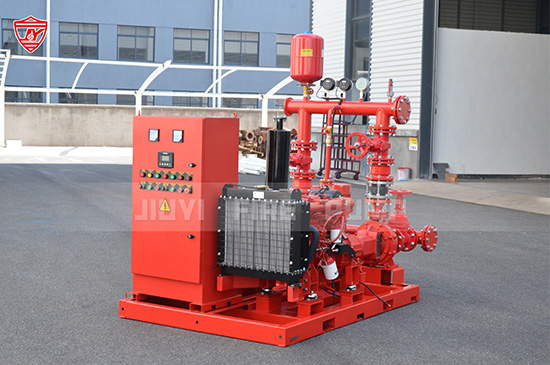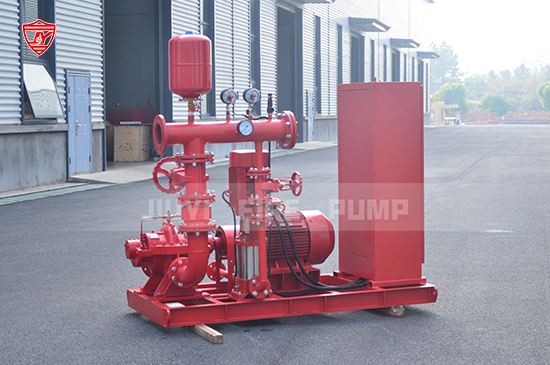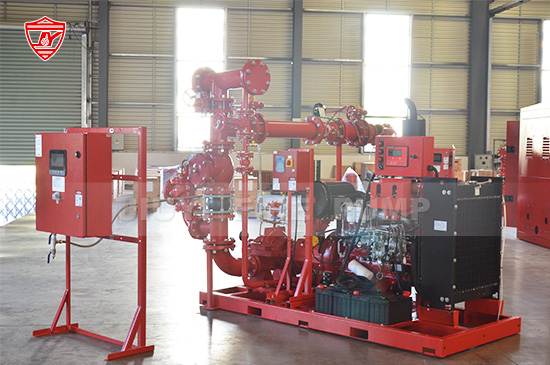As a leading manufacturer of fire pumps, we understand that meeting regional demands is key to serving our international customers. In the Middle East—a region known for its large-scale infrastructure, oil and gas investments, and rigorous safety standards—fire consultants play a crucial role in determining which fire pumps are specified in high-value projects.
This article explores which fire pump types and certifications are most preferred by fire consultants across the Middle East and explains why those pumps dominate engineering and design specifications. Whether you are an EPC contractor, fire safety designer, or procurement officer, this insight will guide you in selecting the right fire pump for your projects.
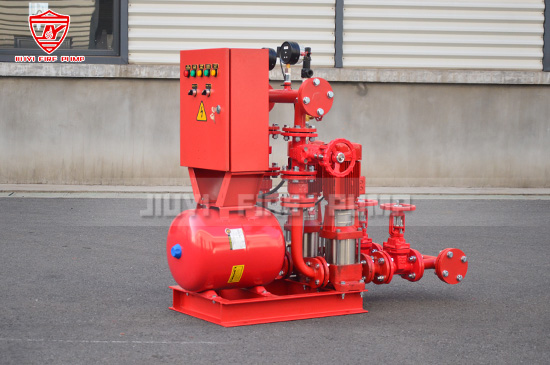
1. Why Fire Consultants’ Preferences Matter
Fire consultants are the professionals who design fire protection systems in buildings, industrial sites, airports, oil refineries, and commercial complexes. Their pump selection determines not only project compliance but also long-term performance, maintenance reliability, and insurance approval.
Their preference is often shaped by:
-
Regional fire codes and standards
-
Insurance and authority requirements (like Civil Defense)
-
Environmental factors (desert temperatures, sand/dust, power grid stability)
-
Past performance data from similar projects
-
Supplier reputation and support network
2. Certifications and Standards: The First Screening Layer
UL Listed and FM Approved Fire Pumps
Across the Middle East, UL Listing and FM Approval are considered minimum benchmarks for fire pumps in premium and government-backed projects. These certifications ensure the pump system has passed stringent third-party testing for reliability and performance.
Consultants prefer UL/FM pumps for:
-
Faster project approvals from Civil Defense authorities
-
Assurance of compliance with NFPA 20
-
Simplified inspection, testing, and maintenance processes
-
Higher chances of insurance approval from international insurers
Compliance with NFPA 20
Fire consultants in the Gulf Cooperation Council (GCC) region—especially in the UAE, Saudi Arabia, and Qatar—are highly aligned with the NFPA 20: Standard for the Installation of Stationary Pumps for Fire Protection. This standard governs the selection, installation, and performance of fire pumps.
3. Most Preferred Fire Pump Types in the Middle East
a. Diesel Engine Fire Pumps
Due to concerns about electricity supply reliability—especially in remote areas or large outdoor installations—diesel engine fire pumps are widely preferred.
Why diesel pumps are favored:
-
No dependence on electric grid during emergency
-
More suited for outdoor or oil & gas environments
-
Easier integration with fuel storage compliance systems
-
Usually required as backup to electric-driven sets in mission-critical projects
Fire consultants often specify diesel fire pumps with:
-
Radiator or heat exchanger cooling systems
-
Fully automatic control panels with engine protection
-
Local and remote monitoring capability
-
Battery start redundancy
b. Electric Motor Fire Pumps
In commercial buildings and urban developments where grid power is stable, electric motor fire pumps are still commonly specified—especially where cost-efficiency and reduced emissions are priorities.
Consultants choose electric pumps when:
-
There’s a reliable secondary power source or generator backup
-
Space is limited (diesel sets require more clearance for exhaust and fuel storage)
-
Quiet operation and lower maintenance are preferred
-
Firewater demand is moderate and continuous
c. Vertical Turbine Fire Pumps (VTPs)
In projects where water sources are located in deep wells, reservoirs, or seawater basins—such as in desalination plants, airports, or large complexes—vertical turbine pumps are the only viable option.
VTPs are often chosen due to:
-
Ability to pump from underground tanks or open water bodies
-
High capacity for long-duration fire protection
-
Resistance to cavitation
-
Customizability in terms of stages and length
Most Middle East consultants prefer VTPs with:
-
Above-grade discharge heads for easier access
-
Fabricated or cast bowls with epoxy-coated internals
-
Stainless steel or bronze components for corrosion resistance
4. Which Brands and Manufacturers Do Fire Consultants Trust?
Although many manufacturers supply to the region, consultants often prioritize suppliers that meet three criteria:
-
Certified by UL/FM with traceable documentation
-
Local or regional service support for commissioning and maintenance
-
Proven history of use in landmark projects
Manufacturers like Better Technology Group are recognized for supplying complete UL/FM fire pump packages including:
-
Diesel, electric, or dual drive options
-
Fire-rated controllers and jockey pumps
-
Skid-mounted or containerized sets for plug-and-play installation
-
Full documentation support (drawings, test reports, certifications)
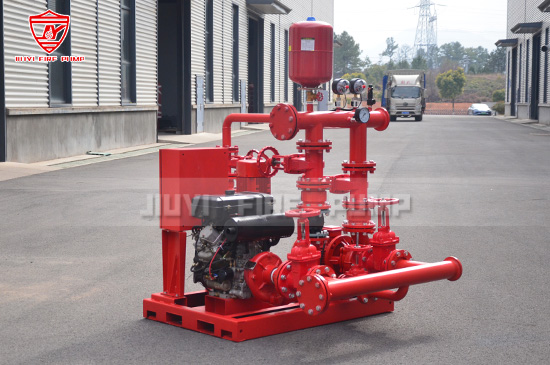
5. Environmental and Operational Considerations
Fire consultants in the Middle East must account for:
-
Extreme heat (ambient temperatures exceeding 50°C)
-
Sand and dust (affecting air intake and cooling systems)
-
Seismic activity in certain zones (requiring seismic-rated base plates and anchoring)
-
Water quality issues, especially in areas where brackish or treated water is used
Preferred pumps often feature:
-
Tropicalized radiators or heat exchangers
-
IP-rated control panels
-
Stainless steel or bronze fittings
-
Sand filters or strainers in the suction line
6. Packaged Fire Pump Systems Are Increasingly Preferred
Instead of sourcing pump sets and controllers separately, consultants now favor factory-assembled, tested fire pump packages. This allows for:
-
Faster approvals from local Civil Defense
-
Shorter installation time on site
-
Easier inspection and performance verification
-
Higher consistency with NFPA 20 and manufacturer recommendations
Typical packaged sets include:
-
Main pump (electric/diesel)
-
Jockey pump
-
Fire pump controllers
-
Baseplate or skid
-
Piping, valves, and accessories
7. How Fire Consultants Evaluate Suppliers
When reviewing supplier options, consultants conduct due diligence on:
-
Track record in the region (reference projects in Dubai, Riyadh, Doha, etc.)
-
Availability of spare parts and service network
-
Responsiveness to technical queries and compliance documentation
-
Support during design stage (hydraulic calculations, CAD support)
-
Flexibility in customization based on project needs
They are more likely to choose a manufacturer that offers:
-
Factory Acceptance Testing (FAT)
-
Site supervision and commissioning
-
BIM files for integration with digital design platforms
-
Language support and training for local teams
8. Projects Where Preferences Are Clearly Seen
Some landmark projects where consultant preferences are evident include:
-
NEOM (Saudi Arabia): High demand for diesel + electric dual sets, UL/FM mandatory
-
Expo 2020 Dubai: Strict compliance with NFPA 20, pre-approved suppliers only
-
Qatar Rail: Vertical turbine pumps for underground water reservoirs
-
Oil & Gas Projects: Diesel-driven sets with explosion-proof panels
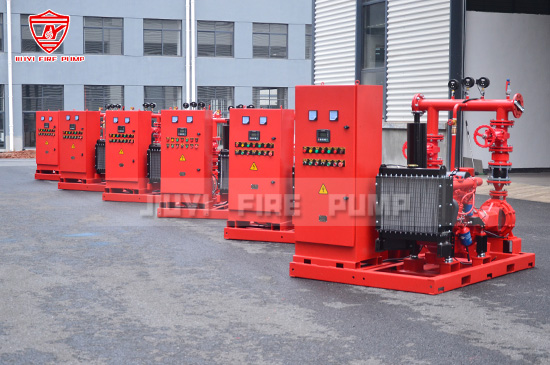
Conclusion
In the Middle East fire safety sector, the pumps preferred by fire consultants are those that combine international certification, environmental resilience, and easy integration. UL/FM-certified diesel fire pumps and vertical turbine fire pumps lead the way in mission-critical applications, while electric fire pumps remain strong in urban developments.
Manufacturers aiming to serve this market must offer more than just products—they must deliver engineering support, documentation excellence, and flexible packaging to meet consultants’ exacting standards.
If you’re seeking a reliable fire pump system that meets Middle Eastern fire consultants' expectations, Zhejiang Jiuyi Fire Technology Co., Ltd. is your trusted partner. With a proven record of UL/FM-certified solutions, project-specific customization, and regional service support, we help your fire protection designs succeed.

